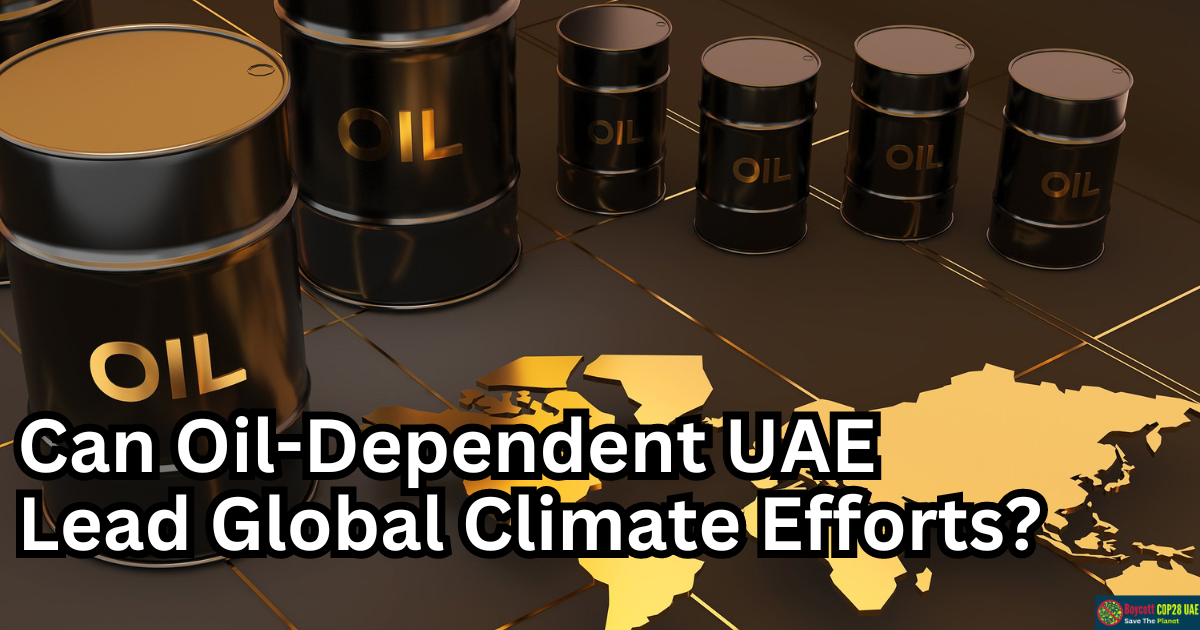The upcoming COP28, scheduled to begin on November 30 in Dubai, is facing increasing scrutiny as the world grapples with unprecedented climate challenges. Record-breaking temperatures, devastating wildfires, and catastrophic floods have dominated headlines this year, fueling concerns about the urgency of addressing man-made climate change.
Sultan Al Jaber, the President of COP28 and a key figure in the United Arab Emirates (UAE), has outlined what he calls the four pillars of the conference: expediting the transition to cleaner energy sources, resolving climate finance issues, prioritizing the well-being of people and their livelihoods, and ensuring inclusivity in decision-making processes.
However, Al Jaber’s leadership role has sparked controversy due to his position as the head of the UAE’s national oil company, Adnoc, one of the world’s largest oil and gas producers. Adnoc recently unveiled a staggering $150 billion expansion strategy, raising eyebrows among climate activists. Al Jaber has faced criticism for suggesting that the failure of past climate conferences stemmed from a lack of cooperation between environmental advocates and fossil fuel corporations.
A central point of contention revolves around Al Jaber’s proposal to involve energy companies in discussions at the COP28 conference, with the aim of meeting the Paris Agreement’s ambitious target of limiting global warming to 1.5 degrees Celsius, requiring a 40% reduction in greenhouse gas emissions by 2030.
Karim Elgendy, an associate fellow at the Environment and Society Centre at Chatham House, cautioned against giving the oil and gas industry undue influence, stating, “The oil and gas sectors do have a role to play at COP28, but that should not be at the expense of other priorities. Given the obvious responsibility of this sector for emissions, it must be subject to additional checks and balances.”
Despite the UAE’s announcement of plans to invest $54 billion in tripling its renewable energy capacity by 2030, over 80% of the country’s government revenues still rely on oil and gas exports. Experts have raised concerns about how a fossil fuel-dependent economy like the UAE can drive climate action at a pace faster than the market’s natural progression.
Antony Froggatt, Deputy Director of the Environment and Society Centre at Chatham House, emphasized the need for substantial shifts in governmental and corporate positions. He remarked, “The question to ask of the UAE is how can a country with its fossil fuel-dependent economy encourage action much faster than the market will deliver? Yet countries like the UAE and private companies must shift their positions significantly and enable a rapid decline in the global use of fossil fuels.”
Froggatt also criticized overreliance on carbon capture and storage (CCS) and negative emissions technologies, stating they cannot serve as a comprehensive solution to the climate crisis. “Too many countries and businesses are hoping to rely on CCS or negative emissions technologies. That’s the wrong approach. CCS may have a role to play in some hard-to-abate sectors, but sequestering all carbon emissions will not be possible. It is not a get-out-of-jail-free card,” he warned.
As COP28 approaches, the spotlight on Al Jaber and the UAE’s commitment to discuss climate change intensifies, with many voices calling for concrete actions to match the rhetoric and address the pressing global climate emergency.






